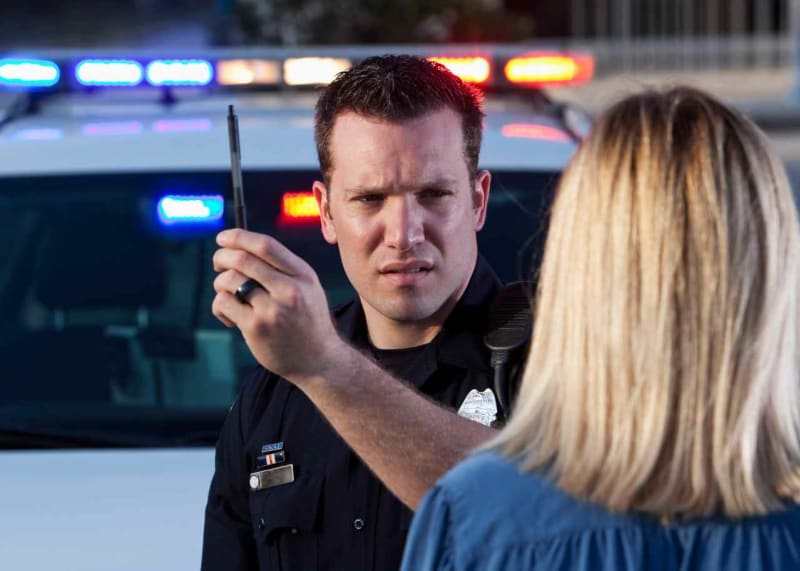If you are pulled over under suspicion of drunk driving, the police officer may ask you to perform a series of roadside field sobriety tests. These tests are designed to assess your coordination, balance, and ability to follow instructions. While they can be intimidating, understanding what they are and how they work can help you better navigate a DUI stop.
Field sobriety tests are often used as evidence in DUI cases, but they are not foolproof. Many factors, such as health conditions, nervousness, and even poor road conditions, can impact your ability to perform these tests successfully. Knowing your rights and what to expect can help you make informed decisions during a traffic stop.
If you have been asked to perform field sobriety tests and are now facing charges, a DUI defense attorney can review whether the tests were administered fairly. Call our firm at (847) 359-4005 to discuss your case and explore your legal options.
What Are Field Sobriety Tests?
Standard field sobriety tests (SFSTs) are physical and cognitive exercises that law enforcement officers use to determine whether a driver is under the influence of alcohol or drugs. These tests help officers assess a person’s ability to perform tasks that require focus, coordination, and balance.
Purpose of Field Sobriety Tests in DUI Stops
The main purpose of a sobriety test battery is to help officers establish probable cause for a drunk driving arrest. If a driver exhibits signs of impairment, such as poor coordination or inability to follow instructions, the police officer may use the results of these standardized tests to justify further testing, such as a breathalyzer or blood alcohol concentration test.
How Officers Use Them to Determine Level of Impairment
Officers look for specific signs of impairment during a roadside field sobriety test, including swaying, stumbling, or failing to follow instructions. These tests allow officers to estimate the driver’s level of intoxication before proceeding with further chemical tests.

While these tests can provide evidence of intoxication, they are subjective and rely heavily on the officer’s judgment, which is why many drivers seek guidance from a DUI defense attorney.
Standardized Field Sobriety Tests and How They Work
There are three standard field sobriety tests that are recognized by the National Highway Traffic Safety Administration (NHTSA). These tests have specific procedures that officers must follow to ensure consistency.
Horizontal Gaze Nystagmus Test
The Horizontal Gaze Nystagmus (HGN) Test is used to detect involuntary eye movements, known as nystagmus, which can become more pronounced when a person is intoxicated.
- The police officer will ask the driver to follow a moving object, such as a pen or flashlight, with their eyes.
- The officer looks for jerking or bouncing movements of the eye, known as smooth pursuit, which may indicate impairment.
- Factors such as health conditions, fatigue, or even bright lights can cause false positives, making this test less reliable in some cases.
Walk-and-Turn Test
The Walk-and-Turn Test assesses a person’s ability to follow directions and maintain balance while walking in a straight line.
- The police officer will instruct the driver to take nine heel-to-toe steps along a straight line, turn on one foot, and return in the same manner.
- The officer observes whether the driver starts too soon, loses balance, steps off the line, or fails to follow instructions.
- Ideal conditions, such as a flat, well-lit surface, are important for accurate results, as uneven pavement or distractions can cause a person to fail even if they are sober.
Learn More: Can You Refuse a Field Sobriety Test in Illinois?
One-Leg Stand Test
The One-Leg Stand Test is designed to test balance and coordination.
- The driver must stand on one leg with the other foot raised about six inches off the ground while counting out loud.
- The officer watches for swaying, hopping, putting the foot down, or struggling to count properly.
- Health conditions, age, and even nervousness can affect performance, leading to inaccurate results. A criminal defense lawyer may challenge the reliability of this test in court.
Non-Standardized Field Sobriety Tests
Some officers may use additional sobriety test battery assessments that are not standardized by the NHTSA. These tests can vary depending on the officer’s training and discretion.

- Finger to Nose Test: In this test, the driver is asked to close their eyes, tilt their head back at a lesser angle, and touch their nose with the tip of their finger. Officers look for difficulty in coordination and control, which may indicate a high level of intoxication.
- Counting or Reciting the Alphabet: The police officer may ask the driver to count backward or recite the alphabet in a non-traditional sequence. Mistakes in memory or speech could be considered signs of impairment.
- Romberg Balance Test: The driver must stand with their feet together, close their eyes, tilt their head back at a lesser angle, and estimate 30 seconds in their head. Officers assess the driver’s balance and ability to follow instructions.
What Happens If You Fail a Field Sobriety Test?
Failing a standard field sobriety test does not automatically mean you will be convicted of a DUI, but it does give officers probable cause to make an arrest.
- How Officers Use Field Sobriety Tests to Justify an Arrest: If an officer determines that you failed a roadside field sobriety test, they may proceed with a DUI arrest and request further chemical tests, such as a breathalyzer or blood test. The results of these tests can be used as evidence in court to measure blood alcohol levels.
- Why Failing Does Not Automatically Mean a DUI Conviction: Many factors can cause someone to fail a sobriety test battery, including health conditions, poor lighting, bad weather, or even nervousness. An experienced attorney can challenge the reliability of these tests in court.
- Can I Be Arrested If I Pass a Field Sobriety Test? Yes, even if you pass a roadside field sobriety test, an officer can still arrest you if they believe there is enough evidence of impairment. Additional factors, such as slurred speech, bloodshot eyes, or the smell of alcohol, may contribute to the officer’s decision.
Why Legal Guidance Matters After a DUI Stop
Field sobriety tests are commonly used in DUI stops, but they are not always reliable. Factors such as health conditions, poor road conditions, and officer bias can influence test results.
If you are facing DUI charges based on a roadside field sobriety test, consulting with an experienced criminal defense lawyer can help you challenge the evidence and protect your rights. Understanding your legal options can make a significant difference in your case. If you need legal assistance, contact Dohman Law Group today for guidance on your DUI case.


